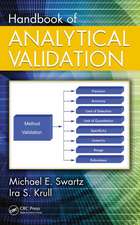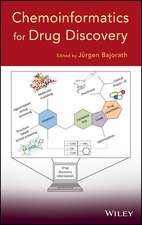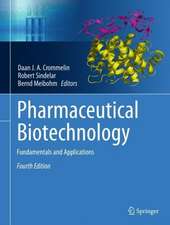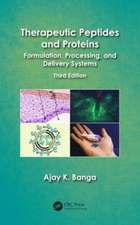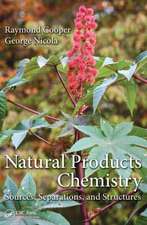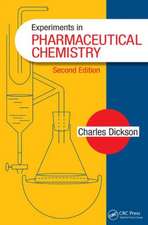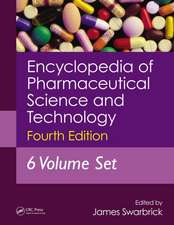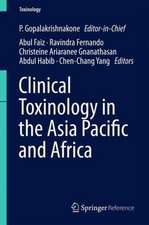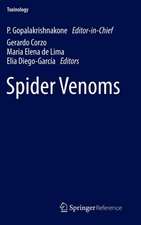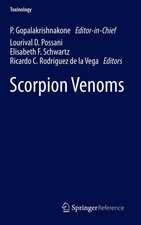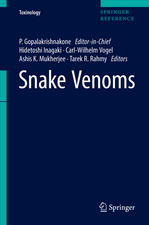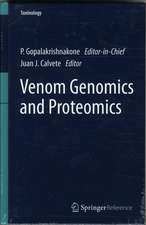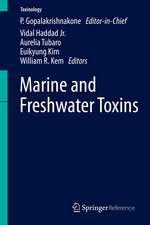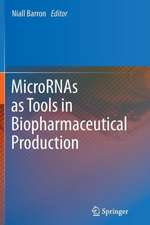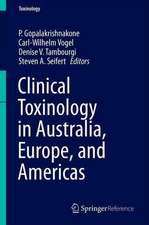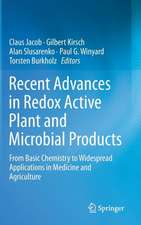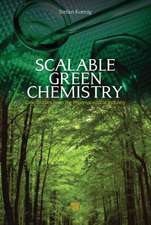Plant Toxins: Toxinology
P. Gopalakrishnakone Editat de Célia Regina Carlini, Rodrigo Ligabue-Braunen Limba Engleză Hardback – 30 mar 2017
Preț: 1325.71 lei
Preț vechi: 1744.35 lei
-24% Nou
Puncte Express: 1989
Preț estimativ în valută:
253.67€ • 265.57$ • 209.90£
253.67€ • 265.57$ • 209.90£
Carte tipărită la comandă
Livrare economică 01-07 aprilie
Preluare comenzi: 021 569.72.76
Specificații
ISBN-13: 9789400764637
ISBN-10: 9400764634
Pagini: 550
Ilustrații: XX, 473 p. 96 illus., 57 illus. in color.
Dimensiuni: 155 x 235 x 26 mm
Greutate: 1.05 kg
Ediția:1st ed. 2017
Editura: SPRINGER NETHERLANDS
Colecția Springer
Seria Toxinology
Locul publicării:Dordrecht, Netherlands
ISBN-10: 9400764634
Pagini: 550
Ilustrații: XX, 473 p. 96 illus., 57 illus. in color.
Dimensiuni: 155 x 235 x 26 mm
Greutate: 1.05 kg
Ediția:1st ed. 2017
Editura: SPRINGER NETHERLANDS
Colecția Springer
Seria Toxinology
Locul publicării:Dordrecht, Netherlands
Public țintă
ResearchCuprins
Biotechnological Potential of Ribosome Inactivating Proteins (RIPs).- Cyanotoxins Cyclotides: Plant Defense Toxins.- Entomotoxic Plant Proteins: Molecules to Develop Genetically Modified Plants Potentially Resistant to Insect-Pests.- General Mechanisms of Plant Defense.- Locoweeds and Swainsonine.- Moonlighting Toxins: Ureases and Beyond.- Oleander Poisoning.- Phycotoxins Other Than Cyanotoxins.- Plant AB Toxins with Lectin Domains.- Plant Alkaloids: Main Features, Toxicity, and Mechanisms of Action.- Plant and Fungal Hallucinogens as Toxic and Therapeutic Agents.- Plant Compounds with Antiophidic Activities, Their Discovery History, and Current and Proposed Applications.- Plant Cyanogenic Glycosides.- Plant Toxins as Sources of Drugs.- Plants Toxic to Farm and Companion Animals.- Proteinaceous Plant Toxins with Antimicrobial and Antitumor Activities Ribosome-Inactivating Proteins: An Overview.- Suicidal Plant Poisoning.- The Role of Metal-Based Defenses in Plants.- Toxicbut Exploitable Actions of Ribosome-Inactivating Proteins.- Toxic Chemicals from Invasive Alien Plants.- Toxic Nonprotein Amino Acids.
Notă biografică
Prof P. Gopalakrishnakone, M.B.B.S., Ph.D., F.A.M.S., D.Sc., is presently professor of anatomy and chairman of the Venom and Toxin Research Programme at Yong Loo Lin School of Medicine, National University of Singapore. He is also a consultant to the Defence Science Organization in Singapore and adjunct senior research scientist at the Defence Medical Research Institute. Prof. Gopalakrishnakone is an honorary principal fellow at the Australian Venom Research Unit, University of Melbourne, Australia. His research studies include structure function studies, toxin detection, biosensors, antitoxins and neutralization factors, toxinogenomics and expression studies, antimicrobial peptides from venoms and toxins, and PLA2 inhibitors as potential drug candidates for inflammatory diseases. The techniques he employs include quantum dots to toxinology, computational biology, microarrays, and protein chips. Prof. Gopalakrishnakone has more than 160 international publications, four books, about 350 conference presentations, and 10 patent applications. He has been an active member of the International Society on Toxinology (IST) for 30 years and was president from 2008 to 2012. He is also the founder president of its Asia Pacific Section, a council member, as well as an editorial board member of Toxicon, the society’s official journal. His research awards include the Outstanding University Researcher Award from the National University of Singapore (1998); Ministerial Citation, NSTB Year 2000 Award in Singapore; and the Research Excellence Award from the Faculty of Medicine at NUS (2003). His awards in teaching include Faculty Teaching Excellence Award 2003/4 and NUS Teaching Excellence Award 2003/4. Prof. Gopalakrishnakone also received the Annual Teaching Excellence Award in 2010 at both university and faculty levels.
Celia R. Carlini is presently a senior researcher at the Brain Institute, Pontifícia Universidade Católica do Rio Grande do Sul and Full Professor (retired) of the Universidade Federal do Rio Grande do Sul, both institution located in the city of Porto Alegre, RS, Brazil. Her academic degrees include B.S. in Biomedical Sciences (1978), M.Sc. in Molecular Biology (1981), and Ph.D. in Molecular Biology-Protein Chemistry (1985), all three from the Universidade Federal de São Paulo (EPM-Unifesp), São Paulo, Brazil. Between 1993 and1995, she took post-doctoral training at the Center for Insect Science, University of Arizona, Tucson, AZ, USA. She was elected full member of the Brazilian Academy of Sciences, Biological Section, in 2009 and since 2003 she is a scholar productivity fellow (level 1B) from Conselho Nacional de Desenvolvimento Científico e Tecnológico (CNPq), Brazil. She was sectional editor of biochemistry of the Brazilian Journal of Medical and Biological Research, 2003–2010, and serves since 2003 as a member of the editorial board of Toxicon. She has guest-edited two special volumes of Toxicon,in 2004 and 2010, and one special volume of Toxins in 2012. Her lines of research are focused on isolation and physicochemical characterization of polypeptide toxins from different sources, and structure versus biological activity relationships and mechanisms of action of toxic proteins, particularly from plants. She has supervised about 25 Ph.D. thesis and published 110 refereed papers (until June 2014), cited about 1,600 times, factor H=22 (ISI Web-Of-Sciences).
Rodrigo Ligabue-Braun is currently a research assistant at the Biotechnology Center of Rio Grande do Sul Federal University (UFRGS), Brazil. Employing a wide range of computational approaches, his research topics are chiefly focused on neglected toxins, moonlighting properties of proteins, and the effect of unstructured or metastable regions of polypeptides on the structure-function paradigm. His review article on venomous mammals has attracted readers, being certificated as a hot text bythe toxinology community. Aside from research, Dr. Ligabue-Braun has published chapters of textbooks in Brazil and also coordinated science outreach programs aiming low-income students from local communities.
Caracteristici
Overviews plant toxin research, providing accessible, comprehensive and current information Contributes to a series on all areas of toxinology which is a valuable reference tool Presents the work of experts from all around the world Includes supplementary material: sn.pub/extras













